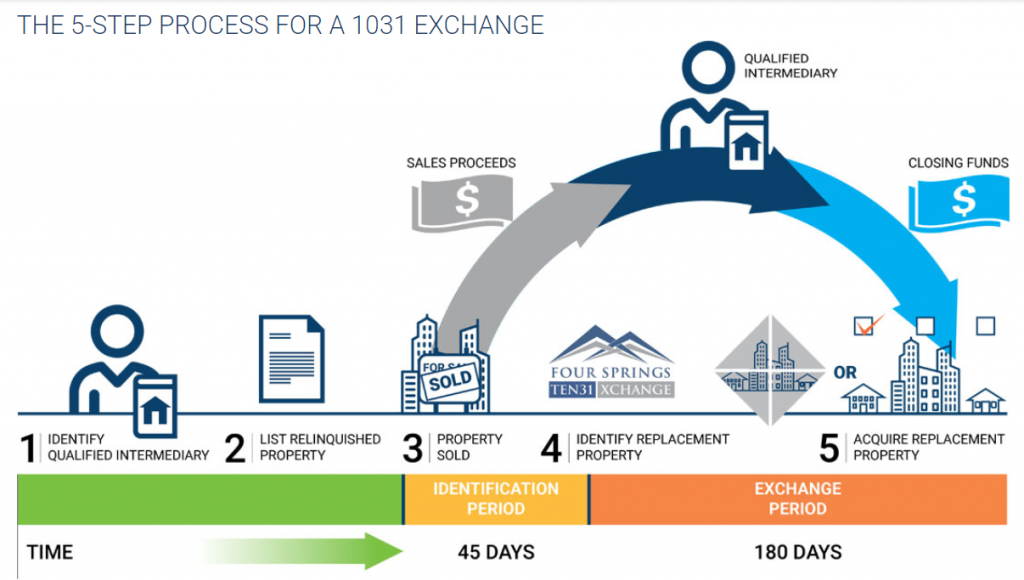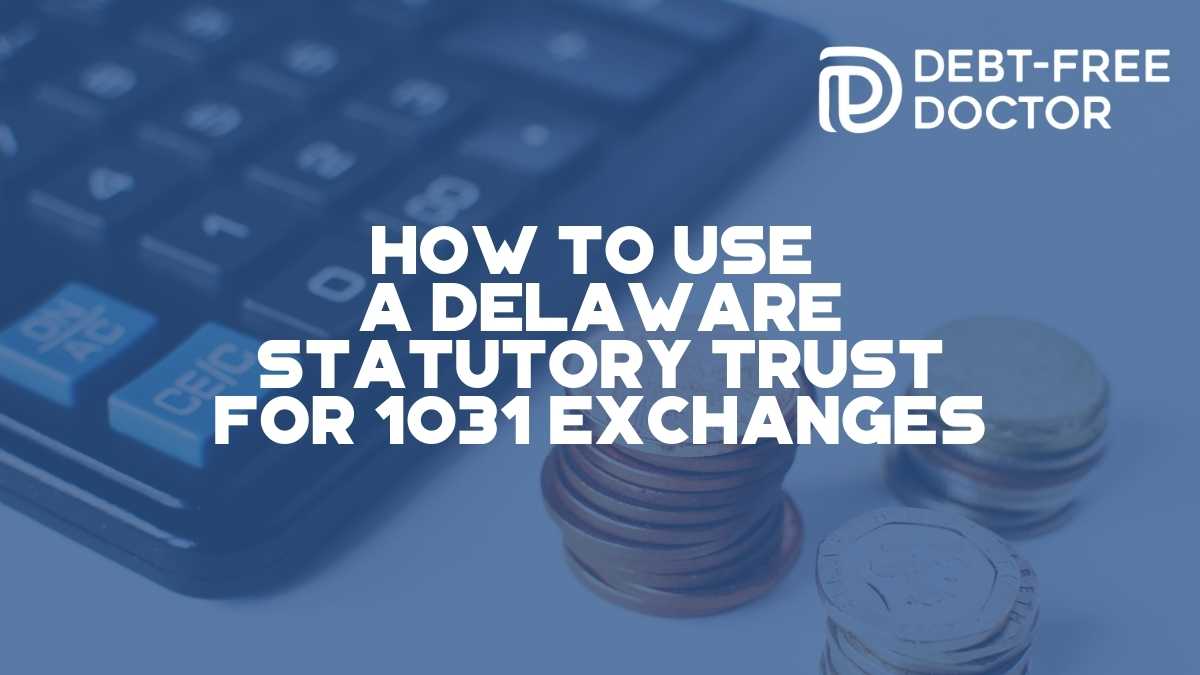How To Use a Delaware Statutory Trust for 1031 Exchanges
As a high-income earner, one of the largest expenses you have is taxes. Unfortunately, too many doctors become complacent with paying almost half of their salary to the IRS and never do anything about it.
Why? I don’t know.
Look, I’m not an accountant so if you have specific tax questions, reach out to a competent CPA before attempting to implement any strategies.
Now that my legal disclaimer is out of the way, let’s talk about taxes.
If you’re sick of paying an exorbitant amount of money to the tax man each year then it’s up to YOU (and nobody else) to do something about it.
As with anything in life, you’ve got to put in the extra work to see results.
Instead of focusing 100% of your time attempting to increase your annual income (working harder), consider working smarter to decrease your tax burden.
How can you do that?
Real estate of course.
It’s got multiple advantages such as using leverage (to increase returns), tremendous tax benefits (depreciation) and something that we’re going to discuss in more detail today, the deferral of capital gains tax using a 1031 exchange and Delaware Statutory Trust (DST).

What is a Delaware Statutory Trust?
The best definition I could find of a DST is from our friends at Wikipedia:
They state that a Delaware statutory trust (DST) is a legally recognized trust that is set up for the purpose of business, but not necessarily in the state of Delaware. (One of the questions Passive Investors Circle members ask is if they have to either live or buy property in Delaware in order to set up a DST.)
(Here’s the important part). DST Investments are offered as replacement property for accredited investors seeking to defer their capital gains taxes through the use of a 1031 tax deferred exchange and as straight cash investments for those wishing to diversify their real estate holdings.
Multiple investors (you and me) pool their equity into a DST and each owns a fractional share of a trust which in turn owns a property. Ownership in a DST is proportionate to the amount invested by each investor. Investors are deemed as “beneficiaries” of the Trust.
The IRS treats DST interests as direct property ownership, thus qualifying for a 1031 exchange and other tax benefits.
Each owner receives their percentage share of the:
- cash flow income
- tax benefits
- appreciation
For those of you that aren’t familiar with one of the most powerful ways to defer taxes made possible by our friends over at the IRS, let’s review how a 1031 exchange works.
Join the Passive Investors CircleWhat Is a 1031 Exchange?
The 1031 Exchange is defined under section 1031 of the IRS Code. In layman’s terms, this tax reduction strategy allows an investor to “defer” paying capital gains tax on an investment property when it’s sold.
The catch is that another “like-kind property” must be purchased with the profit gained by the sale of the first property following a strict timeline (see below).
Simply put, a 1031 exchange is a swap of one investment property for another that allows capital gains tax to be deferred.
What’s The 1031 Exchange Timeline?

In order to benefit from this rule, the IRS states that a specific timeline must be followed:
1) Exchange (sell) one investment property for another (like-kind). It must be real estate for real estate.
2) The property replacing the original property must be of equal or greater value.
3) Here’s where we get into the rules of the 1031 exchange timeline.
- Timeline #1 – You have 45 days after you sell your property to identify up to 3 new properties. This can be done in writing but you have to purchase one or more of them.
- Timeline #2 – You have 180 days to close on one or more of the three properties that were identified.
4) In order to assist with this process, an intermediary has to help. This means that all the funds need to go through a neutral party.
5) After agreeing on a sales price, your intermediary must wire the capital gains to the title holder/company.
6) Fill out the appropriate IRS form 8824.
How Does a Delaware Statutory Trust Work?
The real estate sponsor firm, which also serves as the master tenant, acquires the property under the DST umbrella and opens up the trust for potential investors to purchase a beneficial interest. The investors may either deposit their 1031 Exchange proceeds into the DST or purchase an interest in the DST directly.
The trust will then:
- collect the investment money
- arrange any financing necessary on behalf of the trust
- manage or hire property managers
The trust itself holds direct ownership of the assets with the individual owners owning an interest (or share) in the trust.
The income and distributions are passed through and taxed to the individual owners similar to an LLC.
The trust provides limited liability to the trustees, managers and beneficial owners of the trust, and as a trust.
Don’t Miss Any Updates. Each week I’ll send you advice on how to reach financial independence with passive income from real estate.
Sign up for my newsletterDelaware Statutory Trust Pros and Cons
DST Pros
1. Passive Income – A Delaware Statutory Trust allows investors to continue the process of replacing their active income with passive income.
2. Fractional Interest – One of the biggest advantages of a DST is that it allows a fractional interest in syndications to qualify as a like kind property for exchange purposes.
3. Active to Passive – The DST structure allows those that are active investors (landlords) to convert to a passive investor.
4. Professional Management – While it is always possible to hire someone to manage your properties as an individual investor, DST investors enjoy the opportunity to employ an expert asset and property management team.
DST Cons
1. Loss of control – The trustee or investment manager will be making all investment as well as any property management decisions. For those that are not used to being in charge, this structure may not be right for you.
2. Illiquid – DST investors should be prepared to invest for the life of the trust which can be five to ten years. If you need your investment sooner then a DST shouldn’t be considered.
3. Accreditation – Delaware Statutory Trusts only accommodate accredited investors. This leaves many potential investors unable to take advantage of this tax saving option.
Is a Delaware Statutory Trust 1031 Exchange Right For You?
If you are someone that’s looking to exit a holding, whether active or passive, but doesn’t want to pay capital gains tax, then a DST investment is ideal.
It will allow for a 1031 exchange to be utilized for a fractional interest in an institutional type real estate investment.
This is especially good news for those that are looking to 1031 exchange into a passive real estate syndication.
Join the Passive Investors Circle

